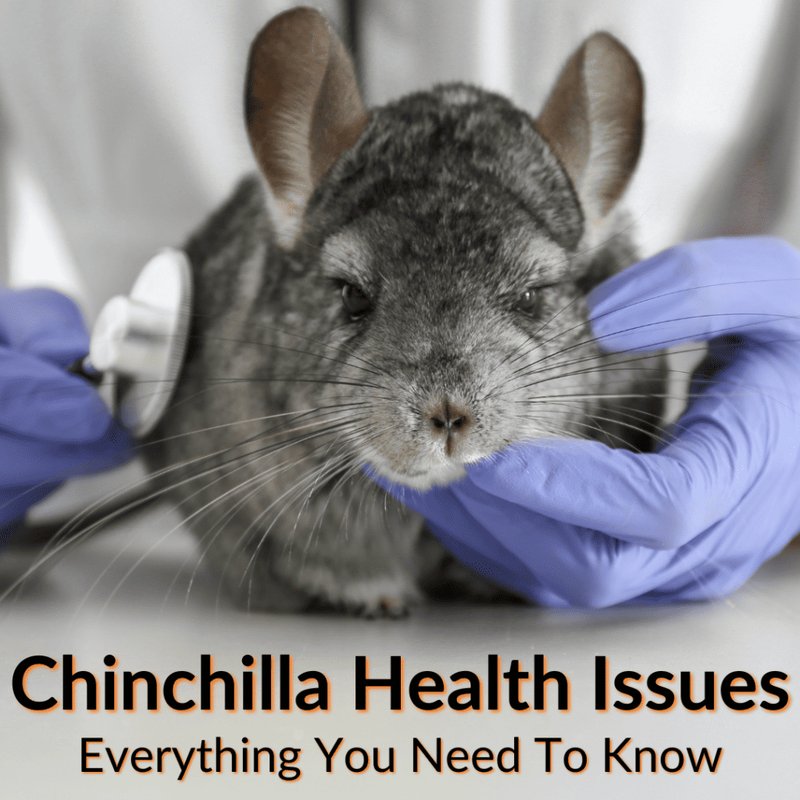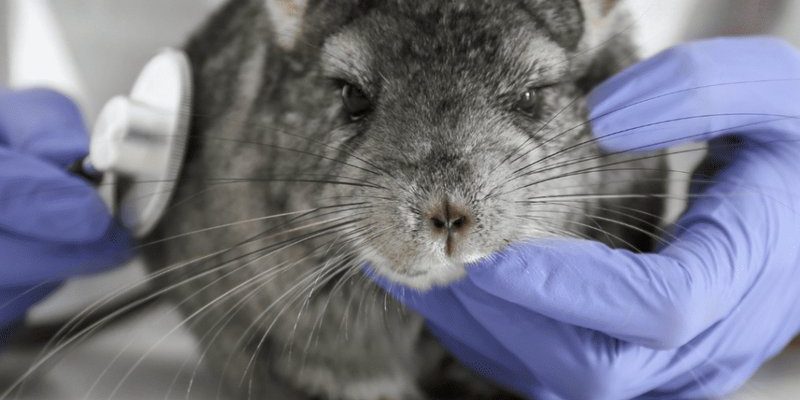
Chinchillas are often known for their soft, luxurious fur and playful demeanor. However, they are also susceptible to certain health problems that can affect their quality of life. Keeping an eye on their well-being is essential for any owner. By learning about these potential issues and how to prevent them, you can ensure your chinchilla lives a long, healthy, and happy life, much like a beloved family member.
Let’s get into some of the most common health concerns for ebony chinchillas and how to keep your little buddy safe.
Dental Health Issues
Just like humans, chinchillas need to keep their teeth in check. Their teeth continuously grow, and if they don’t wear down naturally through chewing, it can lead to dental problems. These can include overgrown teeth, which can become painful and cause serious health issues if not addressed.
You might be wondering, how can I help my chinchilla’s dental health? Providing plenty of chewable items is key. Here are a few options:
- Timothy hay: This not only helps wear down their teeth but is also a great source of fiber.
- Wood chews: Items like untreated apple or willow branches can do wonders.
- Dental blocks: These are specifically designed to help maintain teeth health.
Monitoring their eating habits is crucial. If you notice your chinchilla is eating less or shows signs of pain when chewing, it’s time for a vet visit. Regular check-ups will help catch any dental issues early.
Digestive Problems
Chinchillas have sensitive stomachs. Feeding them the wrong diet or introducing changes too quickly can lead to digestive problems. This can manifest as bloating, diarrhea, or even constipation, which can be quite serious.
Here’s the thing: chinchillas are herbivores. They thrive on a diet high in fiber and low in fat and sugar. You should stick to a consistent diet that includes:
- High-quality hay (like timothy or orchard hay)
- Chinchilla pellets that are specifically formulated for their needs
- Fresh vegetables, but in moderation
When introducing new foods, do it gradually. This way, your chinchilla’s digestive system can adjust without causing chaos. And always keep an eye on their droppings; normal poop is a sign of a healthy gut!
Respiratory Issues
Respiratory problems can sneaky their way into a chinchilla’s life. Poor air quality, drafts, or exposure to dust can lead to serious lung issues. You want your chinchilla’s living area to be a clean and safe environment.
What can you do to prevent these problems? Start by ensuring proper ventilation in their cage. Avoid using bedding that creates a lot of dust, such as cedar or pine shavings. Instead, opt for:
- Paper-based bedding: It’s absorbent and dust-free.
- Carefresh or aspen bedding: Both are gentle on their lungs.
If you notice your chinchilla sneezing, has watery eyes, or shows signs of lethargy, it’s time to call your veterinarian. They can provide the best course of action.
Heat Stress
Chinchillas come from cool mountain regions, so they’re not fans of heat. High temperatures can lead to heat stress, which can be fatal. If you live in a warm climate, you need to be extra careful.
You might think, “How can I keep my chinchilla cool?” Here are some strategies:
- Keep their cage in a cool area of your house, away from direct sunlight.
- Use ice packs wrapped in a cloth to provide cool surfaces in their climbing areas.
- Consider using a fan in the room, just make sure it’s not blowing directly on them.
Regularly check the temperature where your chinchilla lives. If it exceeds 80°F (27°C), take immediate action to cool them down.
Skin Problems
Skin health is often overlooked but is crucial for your chinchilla. Their beautiful fur is susceptible to a variety of skin concerns, including fungal infections, parasites, and even dry skin.
Maintaining good hygiene is one of the best ways to prevent skin problems. Here’s how you can keep your chinchilla’s skin healthy:
- Regular dust baths: This helps remove excess oils and keeps their fur clean.
- Monitor their environment: Avoid putting them in dirty cages or areas where other pets may have been.
- Check for signs of irritation: Redness, bald patches, or excessive scratching should be addressed immediately with a vet’s advice.
A little attention goes a long way in preventing these skin problems.
Obesity and Weight Management
Obesity can sneak up on chinchillas, especially when they’re given too many treats or high-calorie foods. It’s crucial to monitor their weight as excess pounds can lead to a host of health issues.
To keep your chinchilla at a healthy weight, stick to a balanced diet and make sure they get plenty of exercise. Here are some tips:
- Limit high-calorie treats like fruits.
- Encourage playtime: Provide plenty of toys and space to hop around.
- Weigh them regularly: A routine check can help catch any weight gain early.
By keeping your chinchilla active and mindful of their diet, you can help them maintain a healthy weight.
Regular Veterinary Care
Last but not least, regular check-ups with a veterinarian experienced in exotic pets can’t be stressed enough. Many health issues can be spotted early during routine exams, leading to better outcomes.
So, how often should you take your chinchilla to the vet? Ideally, at least once a year. Here are some benefits of regular visits:
- Early detection of health issues.
- Professional dental checks to prevent overgrown teeth.
- Access to vaccinations or other preventive care as needed.
Finding a vet who understands chinchillas will make a world of difference for both you and your pet.
In Summary, keeping ebony chinchillas healthy involves understanding their unique needs and being proactive in their care. By focusing on diet, dental health, environment, and regular vet visits, you’re setting your little friend up for a long and happy life. Think of it as building a strong foundation for a cherished relationship with your furry companion. They rely on you for their well-being, so let’s make sure they thrive!

